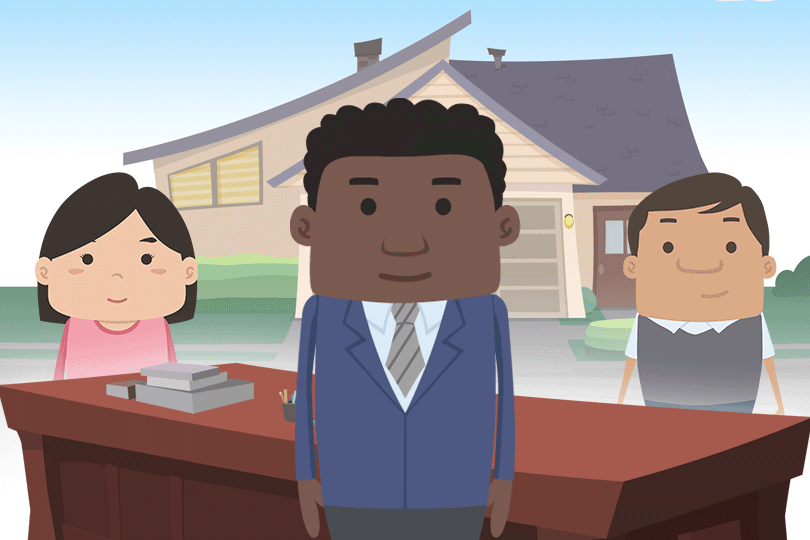Let's Compare FHA Loans to VA, USDA, and Conventional Mortgages
November 30, 2022
FHA Loans
FHA mortgages are backed by the U.S. Federal Housing Administration, a government agency established by HUD to promote equal opportunity housing opportunities for Americans. Borrowers can apply for FHA loans through lenders who are approved to provide them by the FHA. FHA loan programs are a particularly good choice for first-time homebuyers because they are designed with them in mind. The FHA has easier-to-meet standards for borrowers, such as a minimum credit score of 580, a smaller down payment requirement of 3.5%, and a debt-to-income ratio of 43% or less. Since the FHA backs these loans and protects lenders from losses, the lenders find it easier to grant loans to higher-risk borrowers.
VA Loans
VA home loans are great options for active or retired members of the U.S. military, and even for certain qualifying relatives. VA loans are backed by the Department of Veterans Affairs and have many similar features as FHA loans, namely, less stringent eligibility requirements. However, unlike FHA loans, the VA requires NO down payment for VA loans. This makes VA loans especially appealing to first-time homebuyers. About 90% of VA loan borrowers don't put down any money when financing their home.
USDA Mortgages
USDA loans are a lot like the VA and FHA loan programs, but these are backed by the United States Department of Agriculture. These mortgages were established to help make homeownership more affordable in qualifying, rural areas. Unlike the FHA, the USDA sets income limits that borrowers must fall under to qualify for a USDA loan. This limit is typically under 115% of the area median income, which limits the applications to low- and moderate-income families.
Conventional Mortgage
Simply put, conventional loans are mortgages that are not insured by the government, which also means that there are no additional qualification requirements set by any agency outside the lender.
Since conventional loans are not insured by a government agency like the FHA, VA, or USDA, it comes with more risk for lenders. If a borrower defaults on their mortgage, the lender stands to lose out on those payments and interest. That is why conventional loans come with higher qualifying requirements that borrowers must satisfy. Homebuyers with low credit scores who are accepted for government-backed loans may not qualify for conventional loans, since lenders need to be more certain that the borrower can repay the loan. Most conventional loans have a minimum credit score of 620, and a minimum down payment of 5% with private mortgage insurance. Given all these hurdles, keep in mind that conventional loans usually offer comparatively lower interest rates.
You should always talk to an experienced loan officer to see what the best loan type is to suit your needs, but it helps to do your own homework. If you approach a lender already having an idea of what you are looking for, it shows that you are prepared.
------------------------------
RELATED VIDEOS:
Homebuyers Benefit From the Work Done by Fannie Mae
HUD 4000.1 is Sometimes Called the FHA Handbook
Credit History Is Presented as Your FICO Score

FHA Loan Articles
May 14, 2025When you buy a home with an FHA mortgage, you must pay for both mortgage insurance and insurance to protect your property while paying on the loan. There are important nuances to these insurance policies to know before you start. What's the difference between insurance against water damage and flood insurance? That's just one example of the "hidden" expenses of buying your new home to budget for.
May 13, 2025Buying a home with an FHA mortgage means you'll need to know the FHA guidelines about the types of properties you can purchase with an FHA single-family home loan for residential purposes. How well do you understand these rules? Are you truly ready to start house hunting? We examine some key aspects of the process.
May 12, 2025FHA single-family home loans require a minimum 3.5% down payment for typical transactions. Saving for this requires planning and dedication, but it’s not impossible to save enough to make the down payment. How do people typically budget and save for this? Your financial needs and goals will play a big role in how much you decide to set aside for your new home, but here are some options to think about...
April 30, 2025 In a previous post, we discussed why FHA borrowers should carefully consider whether paying for discount points truly serves their best interests, focusing on factors like short-term homeownership, opportunity cost, FHA mortgage insurance, and the prevailing interest rate environment. Discount points are an option for borrowers willing to pay a fee to lower the interest rate by a set amount. This is not right for all borrowers, and you don't want to pay for points you won't benefit from during the loan term.
April 29, 2025Are you considering buying a home with an FHA loan? You'll likely talk to your participating lender about FHA loan "discount points" – fees you pay upfront for a lower interest rate on your mortgage. The idea behind discount points is a straightforward exchange: you spend money today to reduce your interest rate. Typically, one point equals one percent of your total FHA loan. In return, your interest rate might decrease by an amount you and the lender agree upon.







